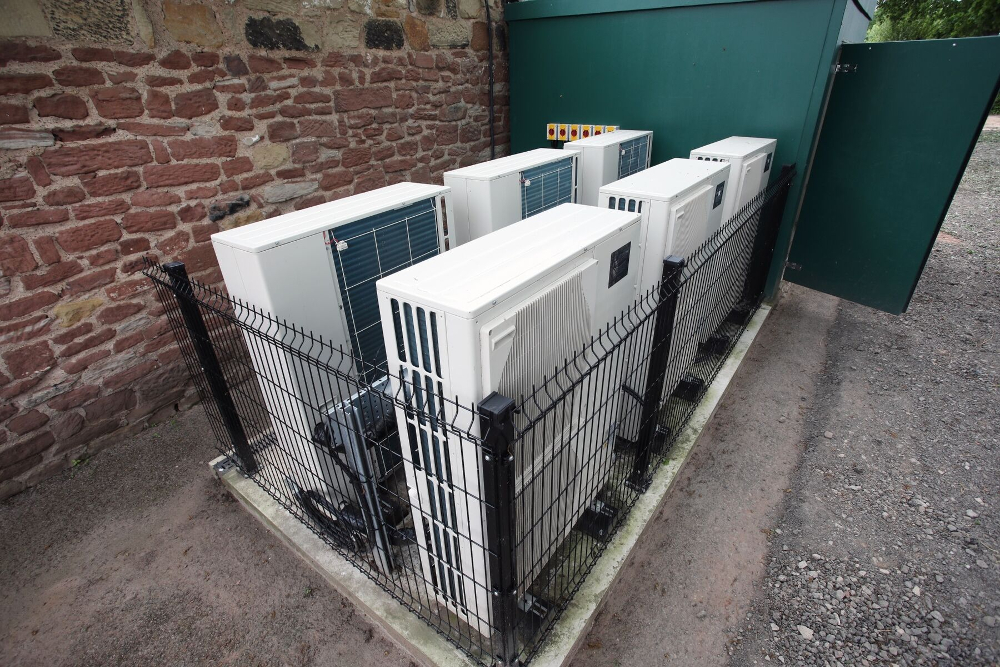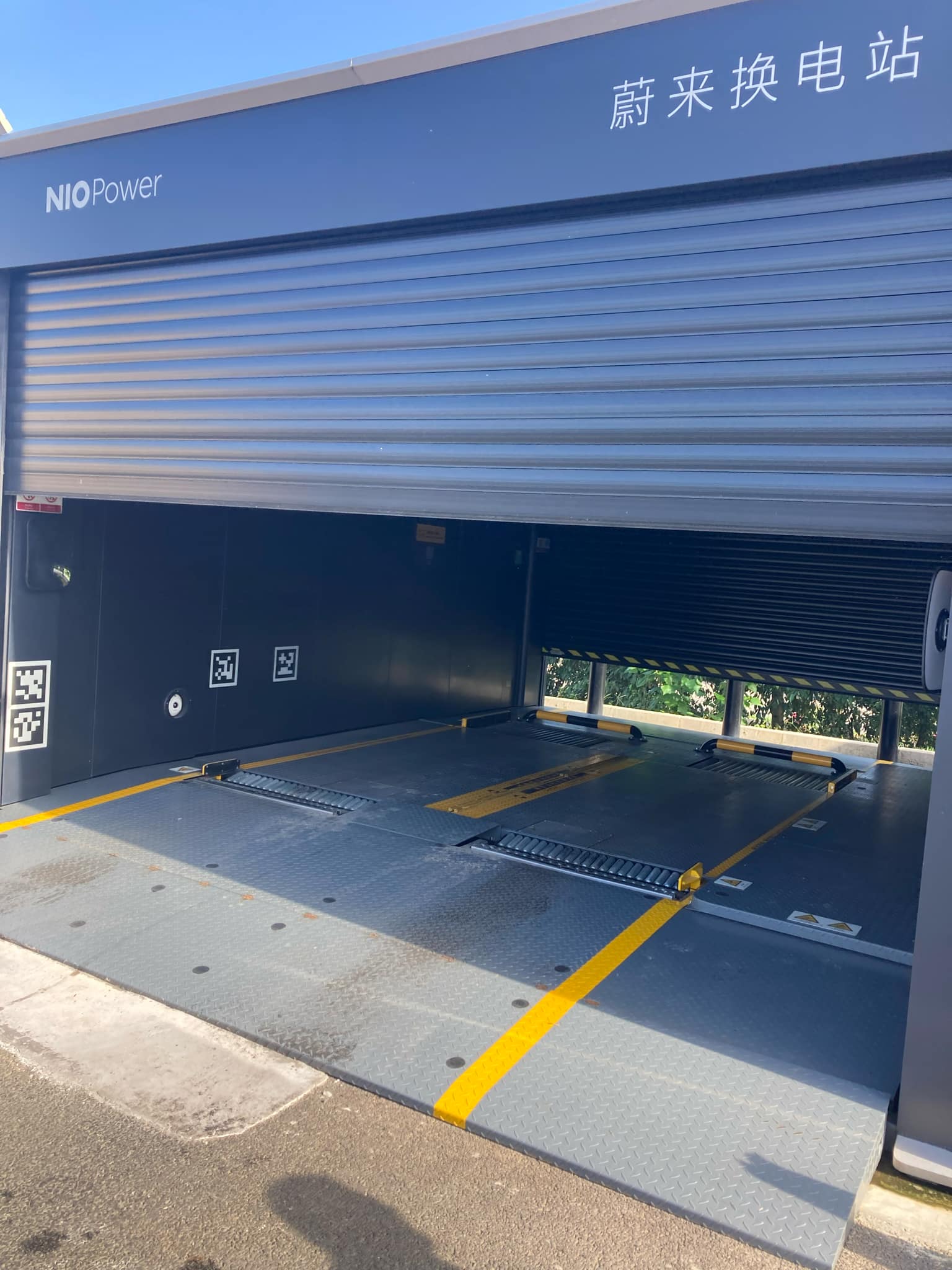Sign up for daily news updates from CleanTechnica on email. Or follow us on Google News!
Why is a zoo in the UK installing heat pumps to keep their rhinoceros herd warm? Because a rhinoceros is acclimated to life in a temperate climate. The UK is not a temperate climate, especially in winter, so its zoos have to heat the buildings where the animals live. A rhinoceros may have a large brain, but it cannot close the door behind itself or open it when it needs to go outside. That means zoos spend a lot of money to keep the heaters in those buildings going constantly to prevent the animals from catching a chill. What’s a self-respecting zoo to do when money gets tight but the animals are freezing?
Fear not, gentle reader, the Chester Zoo has learned what many of you already know. Heat pumps can warm interior spaces, do it better than conventional furnaces or boilers, and do it for a lot less money. Last fall, the Chester Zoo, located south of Liverpool near the quaint English town of Mickle Trafford, replaced the kerosene-fired boiler at its rhinoceros habitat with six air source heat pumps.
Emma Evison is in charge of the team that manages the zoo’s rhinoceros population. She told Bloomberg recently she was very skeptical of the change at first. Rhinos, despite their tough exterior, are sensitive creatures. “I was probably one of the most skeptical people,” she said. She was concerned that her charges — nine critically endangered eastern black rhinos — would be disturbed by the switch. Heat pumps aren’t loud, but they do make a soft whirring sound. New heaters smell different. And temperature in the rhino house, whose residents are far from their native East Africa habitat, has to be maintained with the door open at all times to allow the animals free movement to the outside.
Seven months later, Evison is a convert to the brave new world of heat pumps. Temperatures during the winter dropped as low as -5ºC (23ºF), she says. The rhino house is usually heated to between 18ºC and 24ºC. The biggest test for the new system arrived in November when the birth of a precious calf — Lumi — made maintaining a warm enclosure even more critical. After seeing how the heat pumps performed, Evison says she has “no problem with putting them in any of the other rhino houses.”
Heat Pumps For Rhinos

Heat pumps are a highly efficient form of electric heating, but they have struggled to gain acceptance in the UK, where electricity prices are high and three quarters of homes are heated with methane gas. But rising energy prices and increasing scrutiny of greenhouse gas emissions have a growing number of businesses thinking about reducing the carbon intensity of their heating systems, zoos included.
Zoos in Edinburgh and London currently use heat pumps in certain parts of their facilities, but the Chester Zoo — which also has them in its sun bear enclosure, butterfly house, and event venues — intends to deploy them at scale. A forthcoming exhibit, “Heart of Africa,” will use all electric heating, including air source heat pumps, in the buildings where giraffes, ostriches, reptiles, and invertebrates are housed.
The initiative is part of efforts by Chester Zoo to zero out its Scope 1 and 2 emissions by 2030. Jennifer Kelly, the zoo’s head of sustainability, said there’s also a strong business case. The rhino enclosure was reliant on disruptive and costly kerosene boilers that had to be replenished via tankers once a week. Electricity may be expensive, but a tanker load of kerosene costs quite a few quid as well.
“We’re incredibly high energy users,” Kelly said. “You’re typically keeping or housing animals from much warmer climates in a UK climate and trying to provide them with the temperatures that they would typically have in their native environments.” The steady, consistent heat is also a good fit for the animals, who unlike most humans are always at home.
Solar Panels For Heat Pumps
The Chester Zoo’s next step is installing solar panels to help power its heat pumps, which will bring the zoo a step closer to having self-sustaining buildings. This fall, the zoo plans to release its first full year of data on efficiency and cost savings from all of its heat pump systems. Kelly says early signs are promising, and she hopes Chester can serve as an example for other UK zoos.
There could also be knock-on effects for people who come to the zoo. Heat pumps cause “a little bit of nervousness” among the public, Kelly said, thanks in part to an abundance of negative stories about them. The zoo can serve as a case study that answers questions people have about the technology: Can heat pumps save money? How do they perform in the coldest weather?
Chris Newman, who is overseeing the project as the zero carbon design manager for Mitsubishi Electric, told Bloomberg that there might soon be a display at the Chester zoo to educate the public about heat pumps, what they are, how they work, and why they are a good alternative to conventional heating equipment.
The Takeaway
It is human nature to be skeptical of new technologies. We all have a healthy suspicion about the unknown. Electric car advocates know this only too well. People hear stories about how electric cars take hours to charge, have too short a range, cost too much, and may even be responsible for the collapse of civilized society. That is why it is so important that many municipalities are adding electric vehicles to their fleets. People will see them out and about and think to themselves, “Hmmm, maybe these newfangled cars aren’t so scary after all.” Half of the battle is to get people over their fear of the unknown.
The zoo community is tight knit. What is happening in the UK will have impacts on zoos in other countries. Rhinoceroses are not the only animals in the zoo, of course. The hippopotamus is also a warm weather animal that needs to sheltered from the cold. In fact, some would rather see a hippo rather than a rhino, as evidenced by this salute to hippos from 1953:
Have a tip for CleanTechnica? Want to advertise? Want to suggest a guest for our CleanTech Talk podcast? Contact us here.
Latest CleanTechnica.TV Videos
CleanTechnica uses affiliate links. See our policy here.





